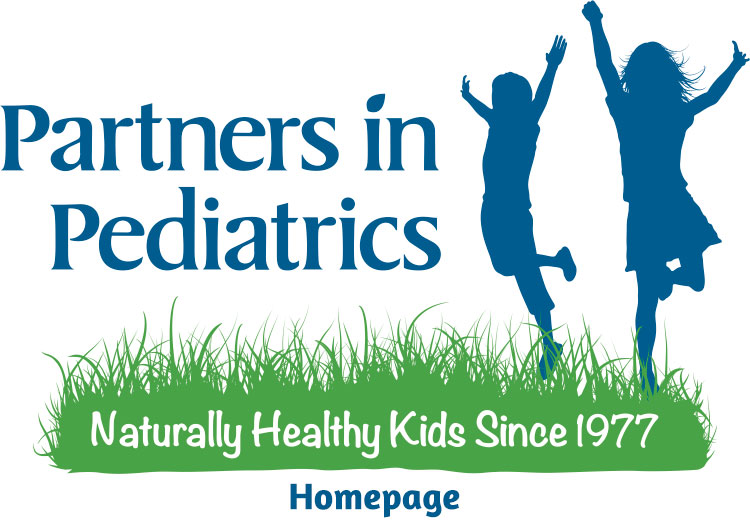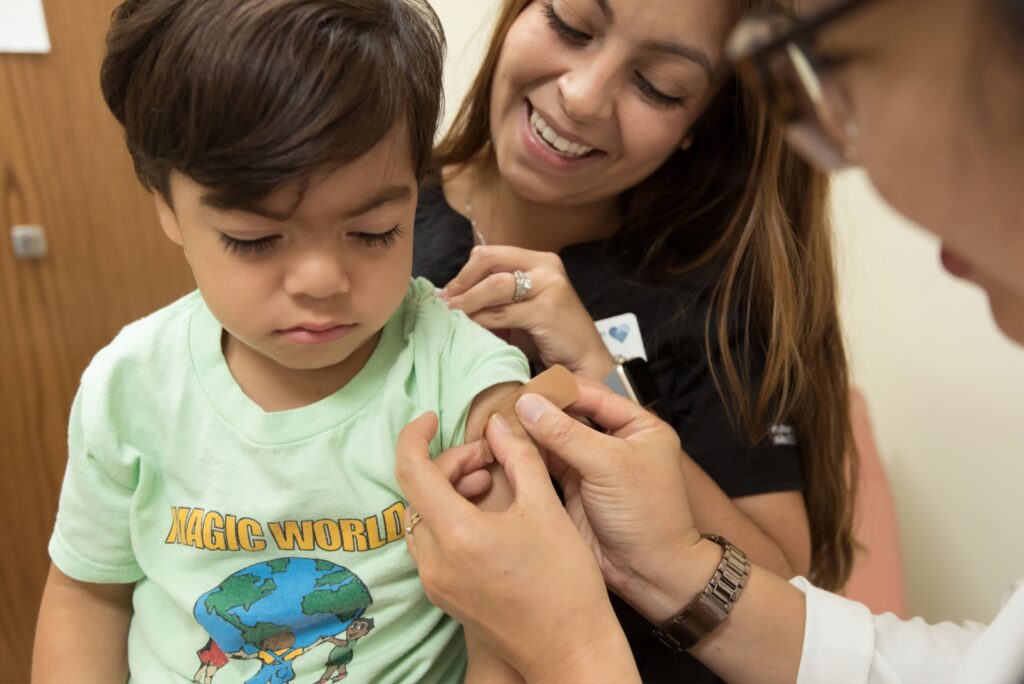(This blog was originally published by Feather Berkower on her excellent Parenting Safe Children website.)
So many of you have asked me how to handle body safety with your pediatrician during wellness visits. In fact, just the other day a parent asked me, “What should I do if the doctor asks to look at my daughter’s private parts and my daughter says, “No”?
Well I couldn’t be happier to share this interview with pediatrician and mother, Dr. Lisa Miller. Dr. Lisa, as her patients call her, is a physician with Partners in Pediatrics in Denver, Colorado. As part of her commitment to keeping children safe from sexual assault, Dr. Lisa practices body-safety communication and interactions with her patients.

Partners in Pediatrics
Feather: We are so fortunate to have Dr. Lisa Miller with us today. She is a pediatrician with Partners in Pediatrics in Denver, Colorado. As part of her commitment to keeping children safe from sexual assault, Dr. Lisa practices body-safety communication and interactions with her patients. Dr. Lisa has also hosted two Parenting Safe Children workshops, including one in her office. Thank you for being with us today.
Can you start by sharing how you came to value your role as a physician who could model body safety and help prevent child sexual assault?
Dr. Lisa: Honestly, no one person or piece of information has shaped how I have body safety conversations with children and parents more than you. It’s not really taught in medical school. While I did some training on child sexual abuse, it focused on the trauma response after the event – not prevention. It was my obstetrician who recommended the Parenting Safe
Children Workshop and that’s how I became aware as both a parent and a doctor. In my office, I have more and more parents thanking me for bringing up body safety, and telling me what they’ve been teaching their children. I can’t thank you enough for this. As a parent and a practitioner, I want every child to feel like they have a voice, so I model that in the office.
Feather: How do you practice body safety with children and their parents in a wellness visit?
Dr. Lisa: I start by reminding parents and children that the visit is about wellness: “Nose to toes and everything in between, including private parts.” In pediatrics, I hear a lot of “No’s.” If you ask a child, “Do you want a shot today?” you’re going to get a big fat, “No!” You also have to read the situation: If I walk in and a child’s already crying because they’re getting a shot today, we’re going to take things slowly. Ultimately, I respect a child’s wishes around their genitals.
Feather: What specific kind of language do you use with children around body-safety and how does it change with age?
Dr. Lisa: With pre-school children, I keep it pretty basic and focus on correct use of anatomical terms for body parts, so we don’t get caught up on cutesy names. In early school years, I start to talk about permission and I share three rules with parents and children about looking at genitals:
- You have to be here with a parent or trusted loved one representing your parent; for example, a grandparent or nanny. Then I look at the parent and I say, “Right?”
- You have to be in my office, another doctor’s office, or in a hospital. We don’t check “privates” at a friend’s house, at school, church, or at soccer. Those are not okay places.
- We only look at the private areas of your body on “check-up days” or if there’s a complaint about private parts. I’ll also tell them if they have a sore throat, I don’t check their penis or vagina. I ask the child, “What are you here for today? Am I going to look at your private parts?” I want children to know that their genitals are not going to be looked at every time they go to the doctor.
I use this language with my patients every day and I think they come to expect it. Some children will ask me, “Hey are you going to ask me my three rules today?”
I might be jumping ahead a question or two, but by the time we’ve made our way into adolescence, I’m still impressing upon them that no one has the right to touch them in a way that’s inappropriate. I’m also focusing on what a healthy relationship looks like. I want my adolescent patients to feel like they have an outlet, someone to talk to if they feel like they don’t have someone else.
Feather: This is really comprehensive. I’m so impressed; in fact, it’s way more comprehensive than I was expecting to hear.
Dr. Lisa: If I, as the doctor, am the exception to the “No one’s allowed to touch your private parts” body-safety rule, then I really want children to understand that this really is the only exception—and still requires permission.
Feather: Just the other day, a parent asked me, “What should I do if the doctor asks to look at my daughter’s private parts and my daughter says, ‘No’”? What do you do if a child says “No” and then “No” again?
Dr. Lisa: I try to build rapport, but if I get a repeated “No,” I will respect that. I often have to tell the parent that it’s okay if we miss this year. Unless there’s a complaint about genitals, it’s okay to skip a year. I also ask the child if they would feel more comfortable with a male doctor or a different provider in the office. Sometimes parents are pushing their child to let me look at their child’s private parts and I tell parents that I’m glad their child is advocating for themselves.
I remember from one of your talks that parents want their children to be all nice to adults, but there must be exceptions. You want your child to be the kind of kid who can yell at an adult when it comes to private parts and consent.
Feather: I have a little tip to throw in here. If the child is refusing and the parent is worried about politeness, you can also remind the parent that being able to say “No” to you in a safe environment gives the child greater confidence, knowledge and ability to say “No” if they were ever in an unsafe environment. You are helping youth practice consent.
Dr. Lisa: Right, yes, I totally get it.
Feather: You have such a great opportunity to be talking about consent.
Dr. Lisa: I appreciate that. The language, verbally and non-verbally, grows with time and feedback.
Feather: Let’s talk a little more about teens. Is there ever an opportunity to talk about social media and pornography?
Dr. Lisa: Yes, but especially with the growing mental health crisis a lot of times my visits with teens are less about physical wellness like sleeping and eating and more about how they feel about themselves. I really need an hour-long session for preventative guidance to cover everything. I really wish I had more time.
We do assess for overuse of screen time. I discuss how the law looks no differently at a 13-year-old teen than it does a 31-year-old adult. If there’s something illegal on your phone, you get treated like an adult. I tell teens that they are not going to be in trouble if they share anything with their parents—that we just need to know what they may be exposing themselves to. I want teens and parents to continue this conversation on the car ride home. I tell teens that we want them to mistakes on our watch so we can guide them now rather than when the consequences are too high.
Sometimes as I rattle through my list (screen images, drinking, etc.), I pick up a cue where I need to delve a little deeper. Sometimes Mom or Dad may want me to go back and talk to a certain point and get my perspective.
Feather: Gosh, my doctor never talked about these things!
Dr. Lisa: You also didn’t have access to social media!
Feather: Moving in a different direction, I wanted to talk about youth offense. A third to half of all sex offenses are committed by youth. Ages 12 to 14 are peak years. In your wellness visits, how do you screen for children who may be victims of sexual assault or who may be acting out sexually against other youth? Can this happen in a short visit?
Dr. Lisa: It can now! But with my ever bloating agenda for this very impressionable and moldable group there’s a lot to cover. I start to offer private conversations with patients who are between 11 and 14.
After 14, I ask a parent to step out, which rarely or ever gets met with resistance; if anything, the kid is like, “No, they don’t have to leave.” I wouldn’t know how to ask the right question, but I always ask if they feel safe, if they like being at home. We know what the stats are with domestic violence; someone has to be asked seven times before they finally admit to it. This may be a new area for me to explore and to pass along to my colleagues. I’d love any feedback on this.
Feather: As a doctor, you’re examining genitals so you can be looking for physical signs. Earlier you mentioned that you tell children that one of the rules around a doctor looking at private parts is that you must be in the doctor’s office and no one is allowed to look at or touch your private parts outside of this office. Maybe that’s a way for you to include it.
Dr. Lisa: Hmm. Maybe that’s a way to include it because the younger the child the more sincere they are in their answers. There would be no harm in bringing it up this way.
Feather: You also might pose it as a “What if” when you’re talking with children about genitals only being examined in the doctor’s office. You can say to children, “What if someone else asked to look at your vagina, penis, or breasts?” What can you do?” And then you could discuss who they can tell. Even if it’s a short conversation, you are in an excellent position to screen for children who might be victims or might even be acting out sexually themselves.
Dr. Lisa: I talk with parents about understanding normal sexual development versus concerning behavior. For example, they do not have a deviant child because their 4-year old looked at their own genitals.
Feather: Talking about age-appropriate sexual development with children in your visits might be a great way to listen for a child who might blurt out something like, “My friend touched my penis.” Children don’t often come out and tell about sexual touch, but if they know that the adults around them talk about body safety, there’s a greater chance a child will tell what’s worrying them.
Feather: You are first and foremost a parent. Do you have any advice to offer parents on becoming strong prevention advocates for their children?
Dr. Lisa: I think the global relationship you foster with your child – not fear and not rules – but communication is the hallmark of conversations about body safety and prevention. Sometimes this might be a subject matter that parents might need some help with and hopefully their health care provider can help. Open conversations go well beyond body safety. You want your children to be comfortable talking with you about drugs or any topic. It pays off tenfold when you start these conversations early.
I am a humanitarian. I think people do good, but there are people who prey on children so you have to teach your child about safety. You can’t just expect adults to always do the right thing because not all adults are safe. This really struck a chord with me when I became a parent— there is a lot that I can provide other than the physical safety like shelter, a car seat, and a bike helmet. I think parents have to teach children strategies that they can use if they are in situations that are not safe.
Feather: I think you’re talking about the mission of Parenting Safe Children which is that adults are ultimately responsible for keeping children safe from sexual assault. However, it’s also important that children have information about their bodies, appropriate touch, secrets, consent and many other body safety topics in case they are faced with a compromising situation.
We know that many adult survivors of sexual assault say that when they were abused, they did not understand what was happening because no one had ever discussed topics of body safety with them. So true prevention includes 1) adults talking about body safety with other adults and 2) adults talking with children about body safety.
Thank you so much for taking the time to speak with me today, Dr. Lisa. I truly appreciate your time and perspective as a parent and physician.
Dr. Lisa: You’re doing amazing work. Thank you. I’d love to have you back out for our newest generation of folks in my office because so many of them are now new parents themselves and want to hear what you have to say.




Leave a Reply